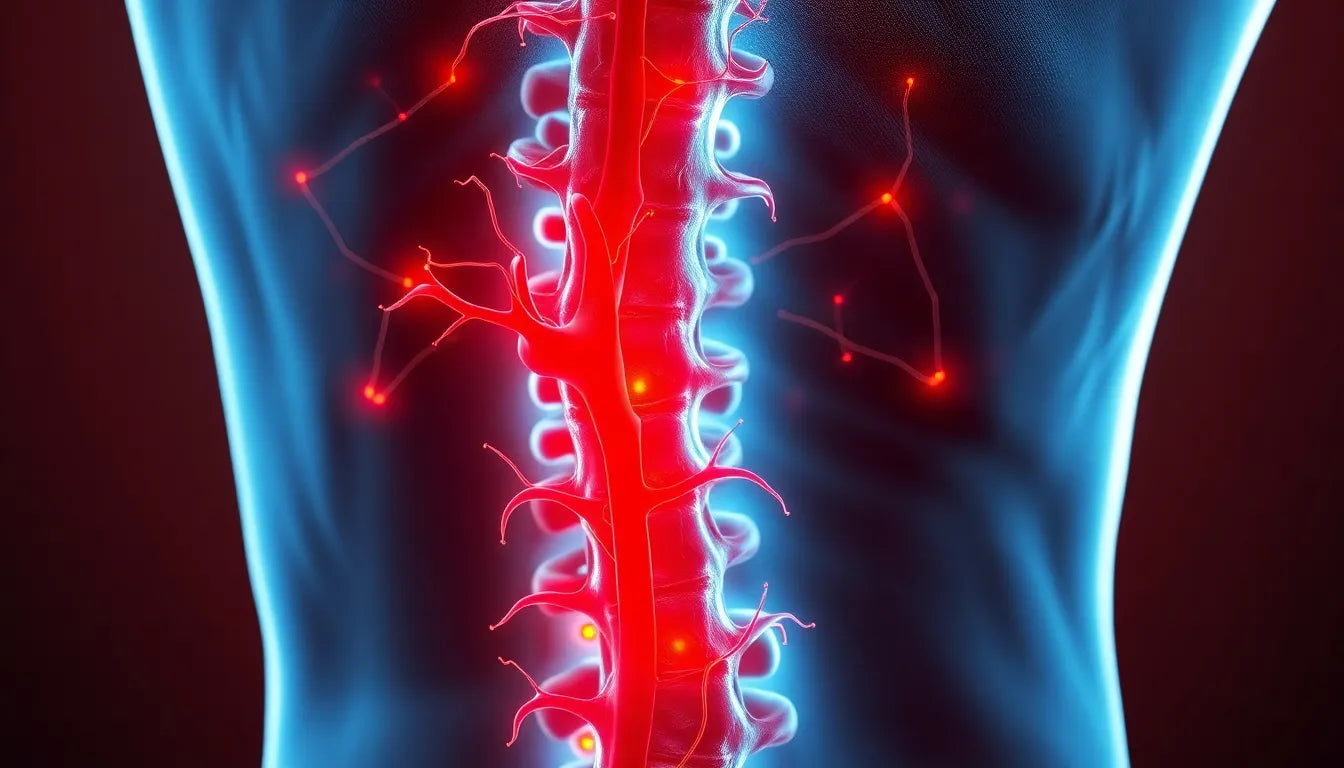Understanding the complexities of herniated disc compensation is crucial for anyone who has suffered from this painful condition. A herniated disc, often resulting from heavy lifting, sudden movements, or traumatic incidents like car accidents, occurs when the soft center of a spinal disc pushes through a crack in the tougher exterior casing. This condition can lead to severe pain, numbness, or weakness in an arm or leg, significantly impacting one's quality of life.
Compensation for herniated disc injuries is designed to provide financial relief for those affected, helping cover medical expenses, lost wages, and other associated costs. Beyond the financial aspect, receiving compensation can also offer emotional relief, acknowledging the pain and disruption caused by the injury. Understanding the potential value of a compensation claim is essential, as it sets the stage for navigating the often complex processes involved in securing a fair settlement.
Common scenarios leading to compensation claims
Several scenarios can lead to compensation claims for herniated discs, with workplace accidents being among the most common. Employees may suffer from herniated discs due to improper lifting techniques, repetitive strain, or accidents involving machinery. In such cases, workers' compensation claims are typically filed to cover medical costs and lost wages.
Personal injury incidents, such as car accidents or slips and falls, also frequently result in herniated disc claims. These cases often involve personal injury lawsuits, which can lead to higher compensation amounts than workers' compensation claims, especially if negligence can be proven. Understanding the difference between workers' compensation and personal injury claims is crucial for claimants, as it influences the type and amount of compensation one might receive.
Workers' compensation generally covers medical expenses and a portion of lost wages but does not typically account for pain and suffering. On the other hand, personal injury claims can include broader compensation categories, such as non-economic damages for pain and suffering, making them potentially more lucrative but also more complex to prove.
In summary, recognizing the scenarios that lead to herniated disc compensation claims and understanding the distinctions between different types of claims are vital first steps for anyone seeking compensation. By doing so, individuals can better navigate the process and work towards securing the compensation they deserve for their injuries.
Settlement ranges and influencing factors
When it comes to compensation for a herniated disc, understanding the typical settlement ranges is crucial. For workers' compensation claims, settlements generally fall between $20,000 and $80,000. However, in cases where the injury is severe or permanent, these figures can rise significantly. On the other hand, personal injury settlements can be much higher, often exceeding $350,000, particularly when the injury has led to substantial life changes or requires extensive medical care.
Several key factors influence the value of these settlements. The severity and permanence of the injury play a significant role; more severe injuries that result in long-term disability tend to attract higher compensation. Additionally, the extent of medical care required, including surgeries and rehabilitation, directly impacts the settlement amount. The injury's impact on the claimant's ability to work and their future earning capacity is also a critical consideration, as is the total of past and anticipated medical expenses.
Lost wages and the potential for future wage loss are significant contributors to the settlement value. Moreover, non-economic damages, such as pain, suffering, and life disruption, can increase the compensation amount, especially in personal injury claims. Finally, pre-existing conditions and the ability to prove causation can affect the claim's outcome, underlining the importance of strong medical documentation.
Types of compensation covered
Compensation for herniated disc injuries can be divided into economic and non-economic damages. Economic damages cover tangible costs such as medical bills, surgeries, and rehabilitation expenses. They also account for lost wages and reduced earning capacity, providing financial relief for the claimant's inability to work due to the injury.
Non-economic damages, on the other hand, address the intangible aspects of the injury. These include pain and suffering, emotional distress, and in some cases, permanent disability. Loss of consortium, which refers to the impact of the injury on relationships with family members, may also be considered in some personal injury claims.
The type of claim—workers' compensation or personal injury—also determines the scope of compensation. Workers' compensation typically covers medical costs and partial wage replacement but does not usually include compensation for pain and suffering. In contrast, personal injury claims can encompass a broader range of damages, including significant compensation for non-economic losses.
Understanding the legal process and proof requirements
Securing compensation for a herniated disc involves navigating a complex legal process, where strong medical documentation and proof of causation are vital. For workers' compensation claims, the process generally requires proving that the injury occurred at work and providing comprehensive medical documentation to support the claim. For personal injury claims, demonstrating negligence and causation is essential, often necessitating legal expertise to navigate the complexities involved.
The claims process typically involves filing the claim, negotiating with insurers or the responsible party, and, if necessary, litigating the claim in court. Understanding the typical timelines and steps involved can help claimants prepare for what can be a lengthy process, often taking several months to reach a settlement.
In conclusion, understanding the various factors that influence herniated disc compensation, the types of damages covered, and the legal processes involved is essential for claimants. Armed with this knowledge, individuals can better navigate their claims and work towards securing the compensation they deserve for their injuries.
Guidance for navigating the compensation process
For those seeking compensation for a herniated disc, understanding the legal process and proof requirements is crucial. The journey typically begins with filing a claim, whether through workers' compensation or a personal injury lawsuit. Strong medical documentation is essential, as it forms the backbone of your case, proving the injury's severity and its direct impact on your life.
In workers' compensation claims, the focus is on demonstrating that the injury occurred during work-related activities. This involves gathering evidence such as medical reports, witness testimonies, and any relevant workplace incident reports. On the other hand, personal injury claims require proving negligence, which can be more complex. This often necessitates legal expertise to establish causation and demonstrate the responsible party's fault.
The timeline for reaching a settlement can vary significantly, influenced by factors such as the complexity of the case and the willingness of the involved parties to negotiate. While some claims may settle within a few months, others could extend over a year, especially if litigation is involved. Understanding these timelines helps manage expectations and prepare for the process ahead.
Practical steps for claimants
Immediately following a herniated disc injury, there are several practical steps claimants should take to strengthen their compensation claim. First and foremost, seek medical attention promptly to ensure the injury is documented and treated appropriately. This documentation will be critical in proving the injury's impact and necessity for any ongoing medical care.
Gathering and organizing all relevant documentation is another crucial step. This includes medical records, bills, proof of lost wages, and any correspondence with insurance companies. Keeping these documents well-organized can streamline the claims process and support your case effectively.
Consulting with a legal professional is highly recommended, as they can provide invaluable insights into the claims process and help maximize your compensation. A lawyer experienced in herniated disc cases can guide you through the complexities of the legal system, negotiate on your behalf, and represent you in court if needed.
Frequently Asked Questions
Do I need a lawyer for my herniated disc compensation claim?
While not mandatory, having a lawyer can significantly enhance your chances of securing maximum compensation. Legal experts possess the knowledge to navigate complex legal processes, negotiate effectively, and ensure that all aspects of your claim are thoroughly addressed.
How long do settlements typically take?
The duration of settlements varies based on case complexity and negotiation dynamics. On average, settlements can take several months, with some cases resolving in a shorter timeframe and others extending over a year, particularly if litigation is required.
Can I still claim compensation if I had a pre-existing condition?
Yes, you can still file a claim if you had a pre-existing condition. However, it is crucial to prove that the herniated disc injury was aggravated or caused by the incident in question. Comprehensive medical documentation is vital to establish this connection and strengthen your claim.
What if my injury occurred outside of work?
If your injury occurred outside of work, you might pursue a personal injury claim rather than workers' compensation. Personal injury claims can offer broader compensation, including non-economic damages like pain and suffering, but they require proving negligence on the part of another party.
Sources
- Shultz Legal. "Workers' Compensation Settlement for Herniated Disc."
- Greenberg Ruby Law. "Typical Herniated Disc Workers' Compensation Settlement."
- Brown & Crouppen. "What Is The Value Of A Herniated Disc Settlement?"
- Colorado Law. "Settlements for Bulging & Herniated Discs."
- Dr. Kevin Pauza. "How to Obtain Workers' Compensation for a Herniated Disc."
- Injury Justice Attorney. "Herniated Discs Injury Lawsuits in California."


















